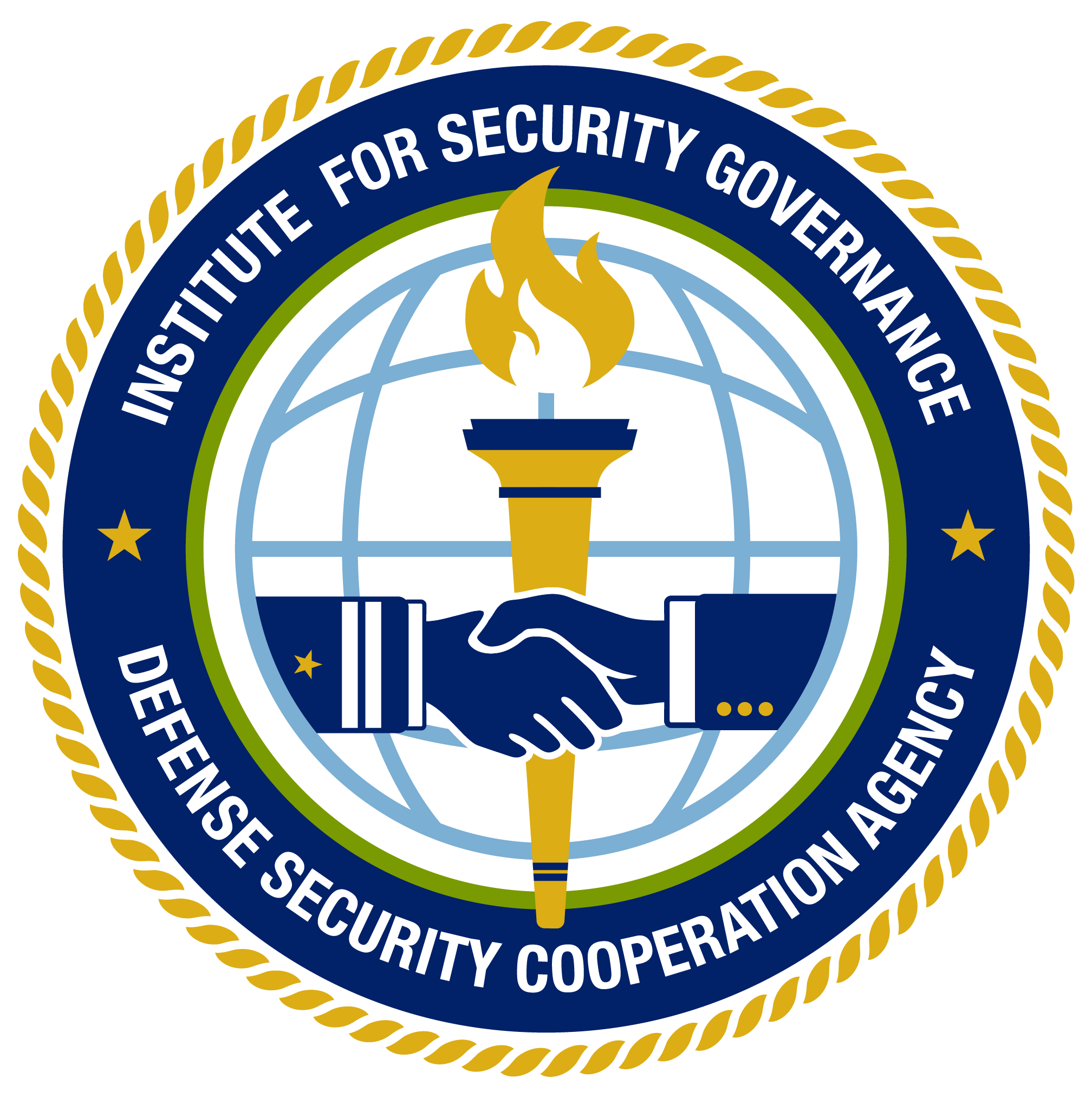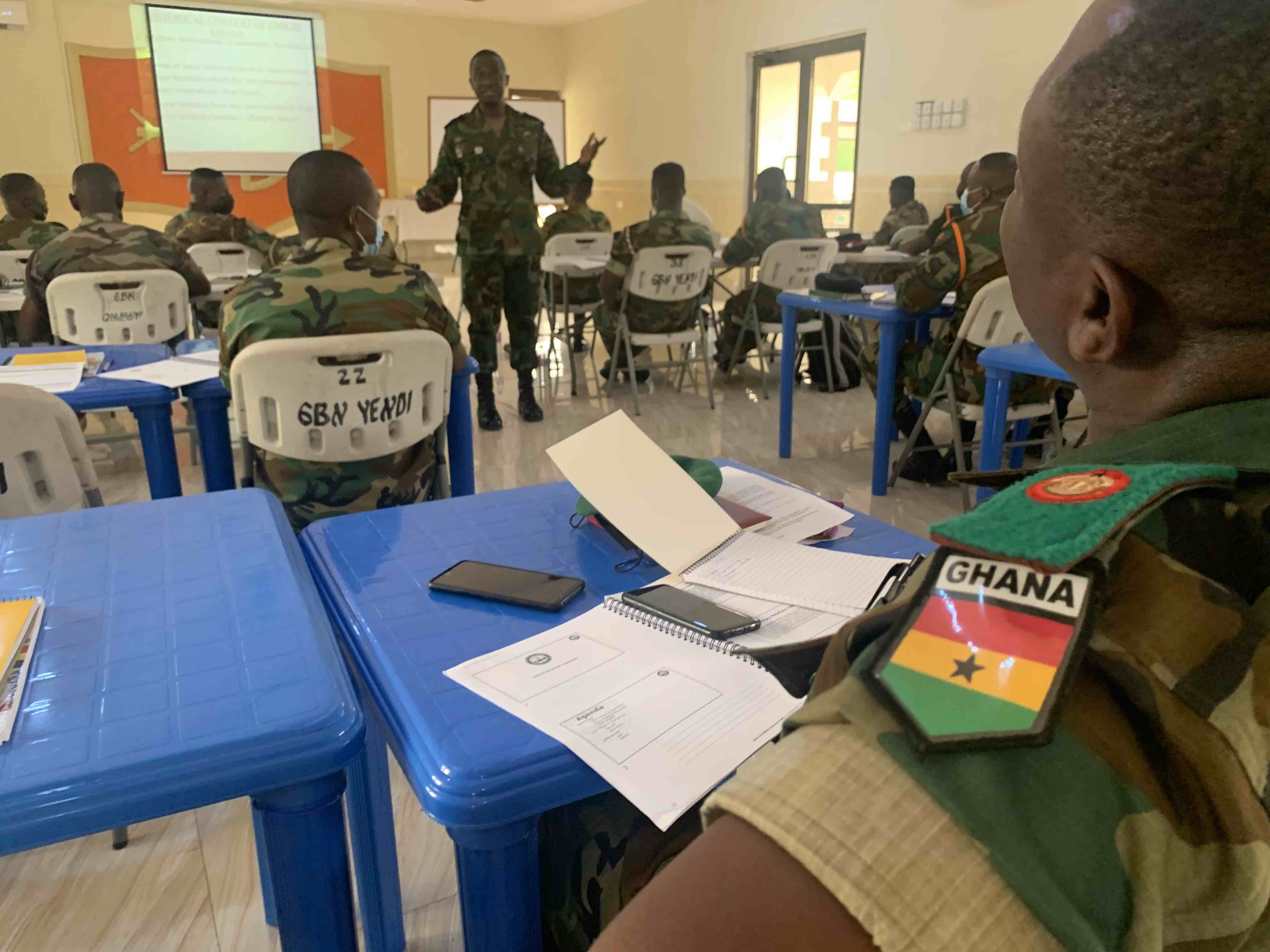A SUCCESSFUL END TO THE TWO-YEAR EDUCATING-THE-EDUCATORS SEMINAR SERIES ON CIVIL-MILITARY OPERATIONS IN GHANA - Defense Security Cooperation University
A SUCCESSFUL END TO THE TWO-YEAR EDUCATING-THE-EDUCATORS SEMINAR SERIES ON CIVIL-MILITARY OPERATIONS IN GHANA
Posted: Aug 1, 2022
Jenny Leggett
Mr. Nicholas (Nick) Tomb – a Functional Lead for Security Governance and Civil-Military Relations at the Institute for Security Governance (ISG) – recently returned from Washington D.C., where he presented on the successful completion of a two-year (2020-2022), in-country Educating-the-Educators Seminar Series for the Ghana Armed Forces (GAF) to the Bureau for Political-Military Affairs and the Africa Bureau for Regional Security Affairs. As Mr. Tomb reported in his presentation, the goals of the seminar series were to enable the GAF to conduct Civil-Military Operations (CMO) education on its own and to develop a program of instruction tailored to the specific needs of its military.
Violent extremist organizations continue to proliferate throughout the Sahel in Africa, committing acts of terrorism and destabilizing the region. Sahel violence threatens many West African coastal stakes like Ghana. Burkina Faso, to Ghana’s immediate north, has suffered devastating attacks causing the civilian population to lose faith in the government and resulting in a military coup in January 2022. Cote d’Ivoire and Togo, to Ghana’s west and east, have also sustained significant attacks, resulting in Togo declaring a state of emergency in June 2022. In response, the GAF has requested U.S. assistance to build the institutional capacity to conduct CMO and civic action programs to promote civil-military relations with local populations and enable future military operations.
Civil-Military Operations (CMOs) are activities undertaken by a military commander to establish, maintain, influence, or exploit relations between military forces, governmental and non-governmental civilian organizations, civil authorities, and the civilian populace in an operational area to facilitate military operations and achieve operational objectives. Put another way, CMO are activities to improve perceptions of the military and win the “hearts and minds” of civil populations. The intent of the seminar series was to build the human capital and institutional capacity of the GAF, and therefore more widely incorporate CMO principles throughout the force.
The Educating-the-Educator model involves a progression in which ISG educators teach a class of students, followed by student-instructors co-teaching with an ISG educator, followed by the student-instructors taking over as the educators, and finally delivering the curriculum to future cohorts of students. Over the course of the seminar series, 161 GAF personnel participated in six CMO courses. Of those, 24 were selected as student-instructors, and 23 student-instructors successfully completed the program of instruction. GAF student-instructors showed impressive initiative, tailoring the ISG curriculum with updated content, activities, local examples, photos, and context.
Mr. Tomb shared key lessons learned such as the importance of a Partner Nation’s political will and the capacity for those involved to absorb and implement the training. He further noted how valuable it was to have a local Partner Nation “champion” involved, who saw the program through to its successful conclusion. Mr. Tomb also highlighted the value of including local, influential, and well-respected personnel as part of the faculty composition.
With respect to potential areas of improvement, Mr. Tomb pointed out that while Women, Peace, and Security (WPS) components were indeed incorporated into the curriculum, there could have been more robust involvement of women in the training as well as more of an emphasis on WPS principles and the important role that women can play in CMO.
The CMO Educating-the-Educators Seminar Series for the Ghana Armed Forces was a great success. It built the institutional capacity of the GAF to promulgate CMO principles throughout its force, which will enable it to deploy forces in the defense of the country while enhancing civil military relations with the civilian populations living near the northern border. The engagement directly supported strategic goals laid out in the interim U.S. National Security Strategy and USAFRICOM Theater campaign plans. Finally, its successful implementation strengthened relations with an important Partner Nation.


